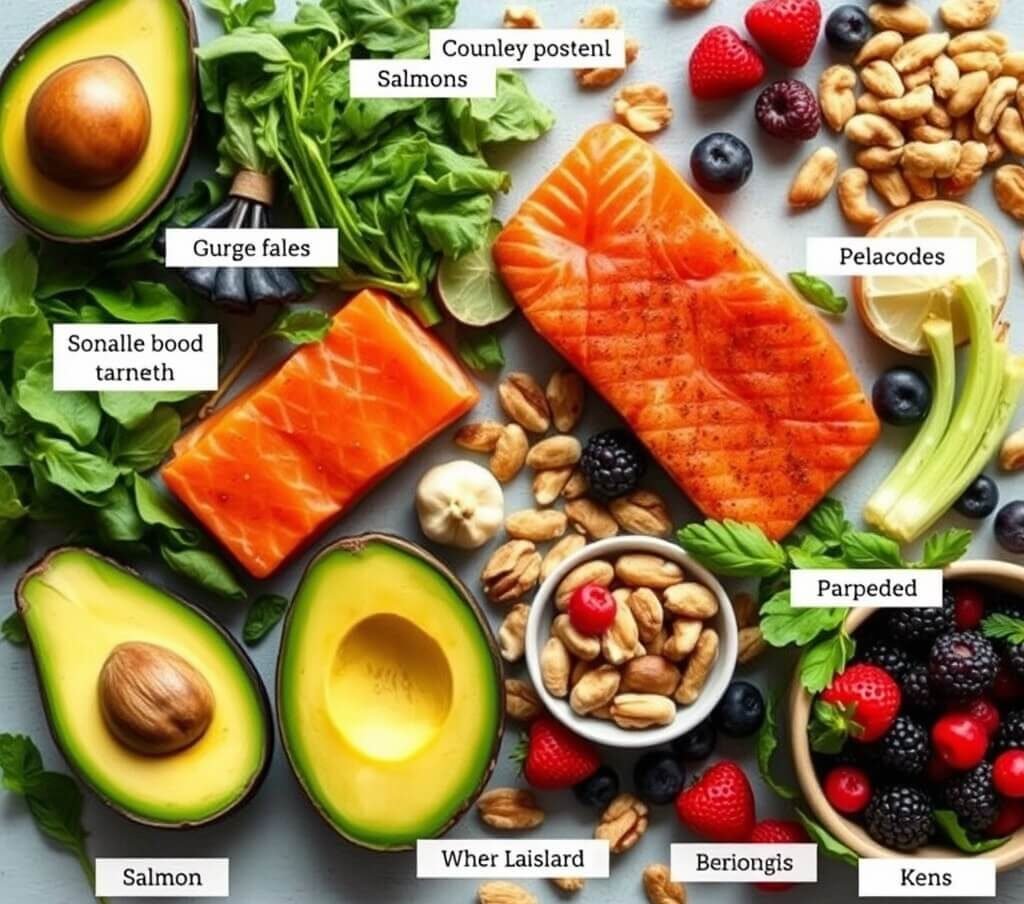
How Hormones Affect Weight Loss and What You Can Do About It
When we think about weight loss, the focus is often on eating better and exercising more. But this traditional approach overlooks a powerful factor: hormones. Hormones are like conductors in the body’s orchestra, coordinating everything from hunger to mood and energy levels. When they’re out of balance, losing weight can become an uphill battle, no matter how disciplined your diet or exercise routine might be.
In this article, we’ll explore the critical hormones affecting weight loss, how to recognize when hormones might be the problem, and actionable steps to regain hormonal balance. Let’s get into how understanding hormones can not only help you lose weight but also lead you to feel better, more energetic, and emotionally fulfilled.
1. The Role of Hormones in Weight Management
Hormones act as messengers, sending signals to different parts of the body to control essential processes like metabolism, hunger, and fat storage. When hormones are functioning properly, these processes work smoothly, supporting a balanced weight. But factors like stress, poor diet, and lack of sleep can disrupt this harmony, leading to a cascade of hormonal changes that make weight loss challenging.
Think of hormones as gatekeepers that can either help or hinder weight loss. They regulate how efficiently your body burns calories, how often you feel hungry, and where you store fat. When even one of these hormones goes off track, it can create a ripple effect that leads to weight gain or difficulty in losing weight.
2. Key Hormones That Impact Weight Loss
Here’s a closer look at the primary hormones that influence weight:
- Insulin
Role: Insulin is responsible for managing blood sugar. When you eat, your body releases insulin to help move glucose from your bloodstream into cells for energy. However, a high-sugar or high-carb diet can cause constant insulin release, and over time, your body may become insulin-resistant. This means your body stores more fat, especially around the abdomen. Signs of Imbalance: Persistent belly fat, frequent hunger, cravings for sugary foods, and low energy can indicate insulin resistance. - Cortisol
Role: Known as the “stress hormone,” cortisol is released when you’re under pressure. In small doses, cortisol helps with alertness and physical performance. But if you’re constantly stressed, cortisol levels stay elevated, which can increase cravings for sugary and high-fat foods and promote fat storage, especially around the belly. Signs of Imbalance: If you’re experiencing frequent stress, anxiety, difficulty sleeping, and increased abdominal fat, high cortisol levels could be at fault. - Leptin
Role: Often called the “satiety hormone,” leptin tells your brain when you’ve eaten enough. But in today’s high-calorie food environment, some people develop leptin resistance, meaning their brain no longer receives the signal that they’re full, leading to overeating. Signs of Imbalance: Constant hunger, inability to feel full after meals, and weight gain are common signs of leptin resistance. - Ghrelin
Role: Known as the “hunger hormone,” ghrelin stimulates appetite, prompting you to eat. When you’re sleep-deprived or under stress, ghrelin levels can increase, leading to intense hunger and a preference for high-calorie foods. Signs of Imbalance: If you feel hungry even after a large meal or find yourself craving sugary or fatty foods when you’re tired, ghrelin may be at play. - Thyroid Hormones
Role: The thyroid produces hormones that control your metabolism. When thyroid hormones are low, metabolism slows down, making weight gain almost inevitable. Signs of Imbalance: Symptoms include fatigue, sensitivity to cold, dry skin, and unexplained weight gain.
3. How to Identify Hormonal Imbalances Affecting Weight Loss
If you’re struggling with weight loss, even with a balanced diet and regular exercise, hormonal imbalance could be the hidden obstacle. Here are signs your hormones might be at play:
- Constant cravings for specific types of food (sweets, salty snacks)
- Difficulty losing belly fat, no matter how much you exercise
- Trouble sleeping or feeling rested
- Mood swings and heightened stress
- Persistent fatigue and lack of motivation
These symptoms might indicate that hormones, rather than a lack of effort, are contributing to your challenges.

4. Effective Strategies for Balancing Hormones to Support Weight Loss
Small, consistent changes can make a significant difference. Here’s how you can start balancing hormones naturally:
- Focus on a Balanced Diet
Avoid highly processed foods, refined carbs, and sugars, which can spike insulin levels. Instead, focus on whole foods like vegetables, lean proteins, healthy fats, and whole grains. These foods promote stable blood sugar levels, which supports balanced insulin and cortisol levels. - Manage Stress with Mindfulness Practices
Chronic stress leads to high cortisol, which can increase cravings and weight gain. Practices like meditation, deep breathing, and yoga help reduce stress and, in turn, lower cortisol levels. Consider spending just 5–10 minutes each day in quiet mindfulness. - Prioritize High-Quality Sleep
Poor sleep is a hormonal disaster—raising ghrelin, lowering leptin, and increasing cortisol. Aim for 7–8 hours of quality sleep to support hunger and fullness hormones. Create a calming bedtime routine and avoid screens before bed to improve sleep quality. - Exercise Wisely
While high-intensity workouts are popular, they can increase cortisol. Balancing intense exercise with low-impact activities like walking, stretching, or swimming can help you stay active without stressing your body. Exercise also helps improve insulin sensitivity, making your body more effective at processing glucose. - Stay Hydrated
Dehydration can lead to increased cortisol and affect insulin levels. Aim to drink enough water throughout the day to support optimal hormone function and keep your energy levels up.
5. Hormone-Friendly Foods to Add to Your Diet
Certain foods support hormone health and can make weight loss easier. Here’s what to add to your grocery list:
- Avocados and Nuts
These are high in healthy fats, which help in hormone production, keep you full, and support stable blood sugar. - Leafy Greens (like spinach and kale)
Packed with magnesium, these greens support stress relief and help keep cortisol levels balanced. - Fatty Fish (like salmon)
Omega-3 fatty acids in salmon can help reduce inflammation, promote leptin sensitivity, and support heart health. - Berries and Citrus Fruits
These fruits are high in antioxidants and can help regulate insulin while reducing inflammation, making them perfect for a hormone-friendly diet. - Turmeric and Ginger
Known for their anti-inflammatory properties, these spices can help support hormonal health by reducing inflammation, which is especially beneficial for people with high cortisol levels.
6. Creating a Hormone-Healthy Lifestyle
Balancing hormones is a long-term process that involves making lifestyle changes rather than searching for quick fixes. Here’s how to create a sustainable lifestyle that supports hormone health:
- Set and stick to a sleep routine to ensure a full night’s rest.
- Practice mindful eating by paying attention to hunger and fullness cues rather than mindlessly eating.
- Incorporate relaxation techniques like journaling, gentle stretching, or listening to music to manage stress.
- Give yourself time and be patient with your journey. Hormone balance doesn’t happen overnight, but every small change brings you closer to your goals.

7. Final Thoughts
Your journey toward weight loss doesn’t have to be a struggle against your own body. By understanding how hormones affect weight, you’re empowered to make smarter, more compassionate choices for yourself. Remember, it’s not just about the number on the scale—it’s about feeling your best, inside and out.
Balancing hormones is about more than just weight loss; it’s about achieving a sense of well-being that permeates all areas of life. Small, mindful changes can have profound effects, so start with one or two tips and build from there. By nurturing your body and understanding its needs, you can find the path to sustainable weight loss and greater overall health.
Embrace this holistic approach to weight management, and you might find that you not only reach your weight goals but also improve your mood, energy, and quality of life.
Summary
In this article, we explored the often-overlooked yet vital role that hormones play in weight loss. From insulin and cortisol to leptin and ghrelin, each hormone can either support or stall our weight loss efforts, depending on how balanced they are. We dove into the symptoms of hormonal imbalances, offered practical lifestyle tips to regain control, and highlighted foods and habits that nurture a hormone-friendly life.
Conclusion
If you’ve been feeling frustrated with your weight loss journey, remember—it might not be about trying harder but understanding your body better. Hormones are powerful allies when they’re in balance, but they need support. Every step you take, whether it’s eating whole foods, managing stress, or prioritizing sleep, brings you closer to a balanced, vibrant, and healthier you.
Imagine waking up with energy, feeling calm and in control, and knowing that the body you’re working for is working with you in return. The journey might take time, but each small, mindful change makes a difference. Trust in your process, give yourself grace, and know that balance and wellness are within reach. You’re not alone in this—your body wants to thrive, and now, you know how to help it get there!
FREQUENTLY ASKED QUESTIONS(FAQs)
1. “How do I know if hormones are affecting my weight loss?”
It can be tough to pinpoint, but if you’re eating well, exercising, and still seeing no results, hormones might be the missing piece of the puzzle. Signs like constant cravings, stress-induced eating, poor sleep, and stubborn belly fat can all be clues that hormones are impacting your journey.
2. “Can balancing my hormones really help me lose weight?”
Absolutely! Hormones control everything from hunger and metabolism to where your body stores fat. When they’re balanced, losing weight feels more natural because your body is working with you, not against you. You’ll likely feel more energetic, experience fewer cravings, and see more sustainable results.
3. “Which foods are best for balancing hormones?”
Whole foods are your best friend! Look for hormone-friendly foods like avocados, leafy greens, fatty fish, nuts, berries, and spices like turmeric and ginger. These foods help regulate insulin, reduce inflammation, and provide the nutrients your body needs to keep hormones balanced.
4. “I’m always stressed—how does this affect my hormones?”
Stress is a huge factor! It causes your body to release cortisol, which can lead to cravings, weight gain (especially around the belly), and even mood swings. By managing stress, you’re directly helping your hormones stay balanced, making weight loss easier and improving your overall well-being.
5. “Do I have to give up high-intensity workouts to balance my hormones?”
Not at all! It’s more about finding a balance. While high-intensity workouts are great, too much can increase cortisol. Try to balance these with low-impact activities like walking, stretching, or yoga, which help manage stress and support healthy hormone levels.
6. “How long does it take to see changes once I start balancing my hormones?”
Results vary for everyone, but many people start to feel better—like fewer cravings and improved energy—within a few weeks. Remember, balancing hormones is a journey, not a quick fix. Every small change brings you closer to the results you want, so be patient and kind to yourself along the way.
7. “Can lack of sleep really affect my weight loss?”
Yes! Sleep is crucial because it impacts hormones like ghrelin and leptin, which control hunger and fullness. When you’re sleep-deprived, you’re more likely to feel hungry and crave high-calorie foods, making weight loss more difficult. Prioritizing sleep is a simple but powerful step toward hormonal balance.
8. “Is hormone imbalance common, or is it just me?”
You’re not alone! Hormone imbalances are surprisingly common, especially with today’s fast-paced, high-stress lifestyle. Many people experience them, which is why understanding hormones is such an important (yet often overlooked) part of health and weight loss. You’re taking a big, positive step by learning how to support your body!
9. “How does insulin resistance impact my weight?”
Insulin resistance can be a hidden barrier to weight loss. When your body becomes resistant to insulin, it struggles to regulate blood sugar, leading to increased fat storage, especially around the belly. By managing your diet, particularly by reducing processed carbs and sugars, you can improve insulin sensitivity and make weight loss easier.
10. “What can I do to reduce sugar cravings linked to hormones?”
Sugar cravings can be powerful, especially when hormones like insulin and cortisol are out of balance. Start by eating more protein and healthy fats, which help stabilize blood sugar levels. Drinking water, managing stress, and ensuring adequate sleep also reduce cravings. Sometimes, simply understanding that cravings are hormonally driven—not a lack of willpower—can be empowering!
11. “Can I balance hormones without medication?”
Yes! Many people find that lifestyle changes—like eating a nutrient-rich diet, managing stress, exercising, and sleeping well—can naturally balance hormones. In some cases, though, certain imbalances may require medical guidance, so it’s worth discussing with a healthcare provider if lifestyle changes aren’t enough.
12. “Is it possible to reset my hormones through diet alone?”
Diet plays a major role, but it’s not the only factor. While eating hormone-supportive foods can make a significant difference, stress, sleep, and physical activity are also essential parts of balancing hormones. Think of it as a whole-body approach where each piece works together to support your hormonal health.
13. “What are the best exercises for balancing hormones?”
A combination of strength training, cardio, and gentle exercises like yoga or stretching is ideal. Strength training helps boost metabolism, while low-impact activities help reduce cortisol levels, especially if you’re under a lot of stress. Choose exercises that you enjoy and can stick with long-term—consistency is key!
14. “How does age affect hormones and weight loss?”
As we age, hormone levels naturally change. For example, metabolism may slow down due to shifts in thyroid hormones, or women might experience fluctuations due to menopause, which can impact weight. Recognizing these changes can help you adjust your lifestyle, focusing on nutrient-dense foods, resistance training, and adequate rest to support your body’s needs at each stage of life.
15. “How can I manage hormonal changes during menopause to avoid weight gain?”
Menopause brings unique hormonal changes, like declines in estrogen, that can make weight gain more likely. To counter this, focus on high-fiber foods, lean protein, healthy fats, and regular exercise, especially strength training, which can help maintain muscle mass and support metabolism. Mindfulness practices, like deep breathing or meditation, also help manage stress and support balanced cortisol levels.
16. “Are there any supplements that help with hormonal balance?”
Some people find supplements helpful, such as magnesium for stress relief, omega-3 fatty acids for inflammation, or adaptogens like ashwagandha for stress. However, it’s essential to talk to a healthcare provider before starting any supplement, as they can guide you on what’s best for your unique needs and prevent any adverse effects.
17. “How does birth control impact weight and hormones?”
Hormonal birth control can affect weight for some people, as it influences hormones like estrogen and progesterone. For some, this may lead to water retention, increased appetite, or shifts in fat storage. If you feel that birth control is impacting your weight, discussing alternative options with your healthcare provider could be beneficial.
18. “What’s the connection between hormones and emotional eating?”
Emotional eating is often driven by hormones like cortisol, which increase when you’re stressed and can trigger cravings for high-calorie comfort foods. Serotonin, a mood-boosting hormone, can also influence eating behaviors. When serotonin levels are low, often due to stress or lack of sleep, you may find yourself reaching for sugary or starchy foods to feel better. Managing stress, getting enough rest, and finding non-food ways to cope with emotions can help reduce emotional eating.
19. “How can I tell if my thyroid is affecting my weight?”
If you’re experiencing unexplained weight gain, fatigue, sensitivity to cold, dry skin, or hair thinning, it might be worth checking your thyroid. The thyroid regulates metabolism, so an underactive thyroid (hypothyroidism) can slow metabolism, making weight loss difficult. A healthcare provider can test your thyroid levels and recommend treatment if needed.
20. “Do men experience hormone-related weight challenges too?”
Yes, men also experience hormonal influences on weight, especially as they age. Testosterone plays a role in muscle mass and fat distribution. Lower testosterone levels can lead to reduced muscle and increased body fat. Men can support hormonal health by staying active, managing stress, and eating a balanced diet, similar to the strategies for women.



